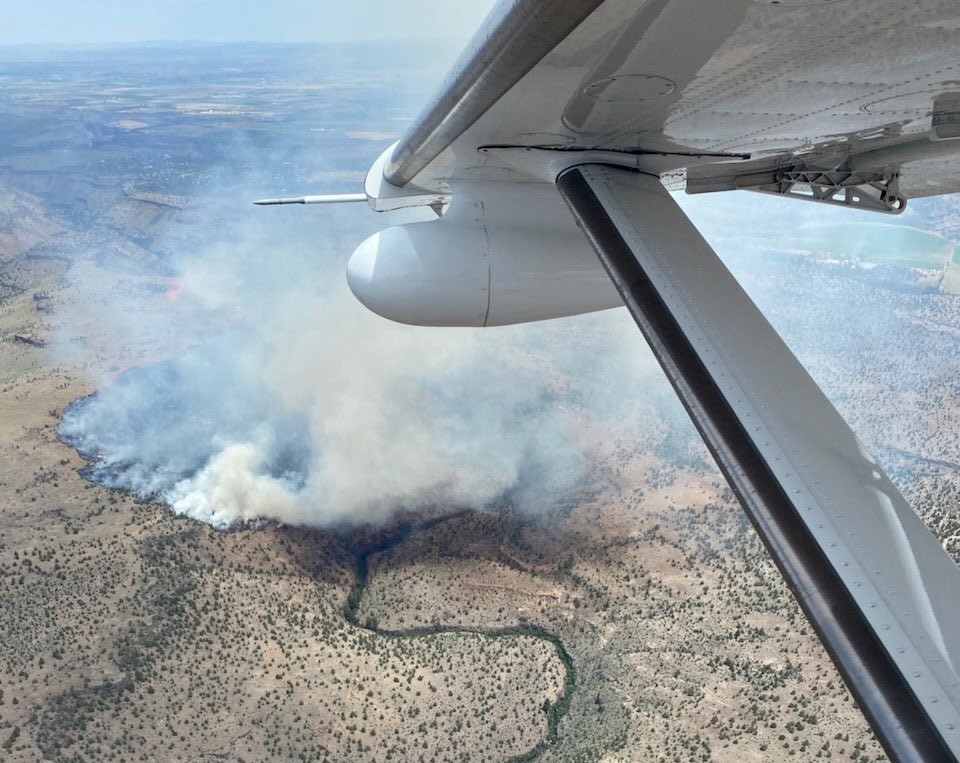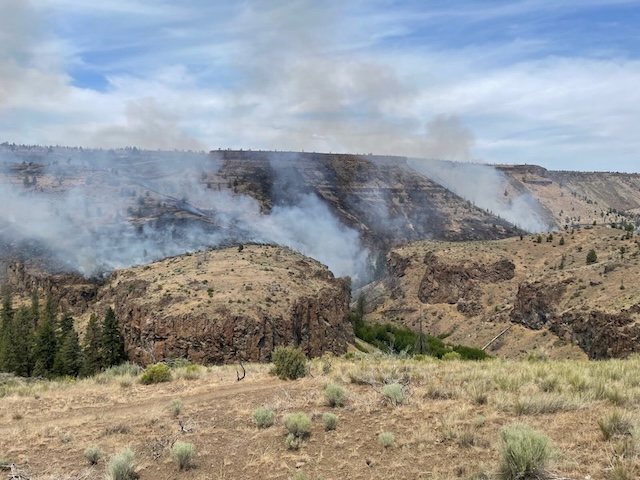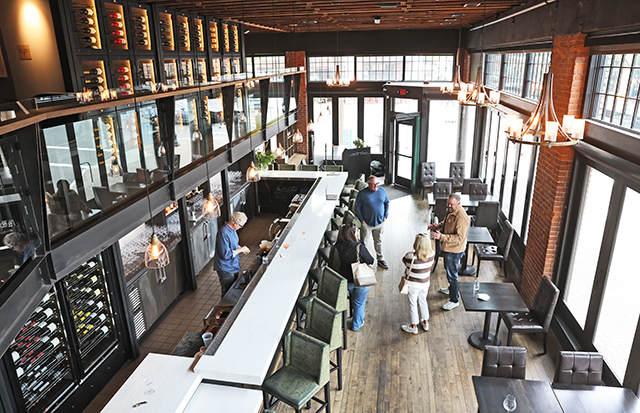Sisters High grad’s start-up to combat water waste
Published 12:00 am Wednesday, September 2, 2015

- Submitted imageThis rendering shows Flume’s product, a device that straps on the side of a home water meter to track water usage. The product will send usage data over a wireless connection to help homeowners track how much water they’ve used and whether leaks exist.
When Eric Adler went away to college after graduating from Sisters High School in 2010, he noticed a bad habit plaguing the households he lived in with friends over the years: water wasting.
“I was sharing a house with five other college students, and we’d have a high water bill every month,” Adler, 23, said of the home he lived in last summer. When he and his roommates would get the bill, they’d vow to watch their water usage, but after a few days it would always fall by the wayside.
“After the first week, we’d forget,” Adler said. “I was watching my roommate wash dishes one day, and how much water was being wasted.”
Since water bills only show a monthly total, Adler started thinking about a better way to track usage, perhaps in real time.
Last September, he pitched a rough idea to his professor at Cal Poly San Luis Obispo for his senior project.
The idea was a device that would track water usage in the home and send the data in real time to an app on a homeowner’s smartphone or tablet.
His professor supported the idea, and Adler recruited two fellow students to join: James Fazio, 22, and Jeff Hufford, 23. Now graduated, the three were accepted into a program at Cal Poly that helps students with startups. Their company, Flume, is working to finish the product over the next year.
The SLO HotHouse Summer Accelerator program has been compared to a sped-up Master of Business Administration. In 13 weeks, HotHouse provides $10,000 in seed money, mentorship and office space for each of the participating startup companies.
At first, Adler said, they thought the device would have to be attached to water pipes, but over time, he and his partners brainstormed something less invasive that homeowners would be more likely to use.
“It was my idea in the beginning, but it changed and developed into something bigger than what my original idea was,” Adler said.
The current prototype is a product that straps onto the side of a water meter. As water moves through residential meters, Adler said, a magnet revolves inside. Flume’s device monitors that magnetic field, and sends data over a wireless connection to an app. The data, he said, will automatically update every 15 seconds, showing how much water has been used.
The app can also send alerts to homeowners about leaks or let users know when they are nearing a limit they don’t want to pass.
Looking back to his time at Sisters High School, Adler credited two programs he thinks put him on the path to founding Flume with Hufford and Fazio: interdisciplinary environmental expedition with teacher Rand Runco and a guitar-building program with teacher Tony Cosby, in partnership with Breedlove Guitar Company.
The interdisciplinary environmental expedition program “educates students on environmental issues and engages them with the wilderness that surrounds Sisters by immersing them in nature via backpacking trips, white-water rafting, rock climbing and mountain biking,” Adler said.
“Rand and the IEE program in general had a huge impact on my desire to create a product and company that embodies sustainability and protects our natural resources,” Adler said.
Runco remembers Adler well and wasn’t surprised to hear about his new business venture: In high school, Adler made a business selling motorcycle parts online, Runco said.
Runco was especially happy, he said, that Flume will help people to be more environmentally conscious.
“He cares about the bigger picture,” Runco said. “He’s so entrepreneurial.”
As for Cosby, Adler said the teacher impacted his decision to pursue a degree in mechanical engineering. During his time in the program, Adler built two guitars. Cosby remembers Adler asking to make more intricate details every step of the way, always wanting to go above and beyond. While most of the students made a six-string guitar, Adler made his with 12.
Tod Nelson, executive director of Cal Poly Center for Innovation & Entrepreneurship, which runs HotHouse, thinks Flume has a lot of potential because of its relevancy to the current drought status in California, as well as Oregon.
He said the tools are there in the HotHouse program to support young companies, but it’s up to the graduates (or in some cases undergraduates) to see them sink or float.
“It’s kind of like an intense business boot camp,” Nelson said. “Flume is a very exciting project for us, because we are experiencing one of the longest droughts in California history. It’s a real eye-opener; it could really change lives.”
As Nelson pointed out, Adler and his colleagues at Flume have already approached public utility companies about the product.
“It’s not a lecture anymore; they’re out in the real world talking to customers,” Nelson said. “You find out whether you have a viable business or not pretty quickly.”
Adler said the San Luis Obispo Utilities Department has already given Flume the green light to sell to its customers when the product is ready. Adler said since water meters are actually the property of utility companies, it’s been important to gain their support.
Some utility companies show “some initial fear and concern,” Adler said, with a device piggybacking on their meters. But once they realize the purpose, they have been supportive.
Rough estimates now put the product at about $200, and there is a waitlist on the website to buy one when it’s released.
Flume is applying for an incubator program through Cal Poly similar to HotHouse but with less support. It would allow Flume to continue to rent a discounted office space.
Right now, Adler has plans to stay in California while the company gets on its feet.
“With the current drought situation, California is like ground zero,” Adler said.
— Reporter: 541-383-0325, kfisicaro@bendbulletin.com






